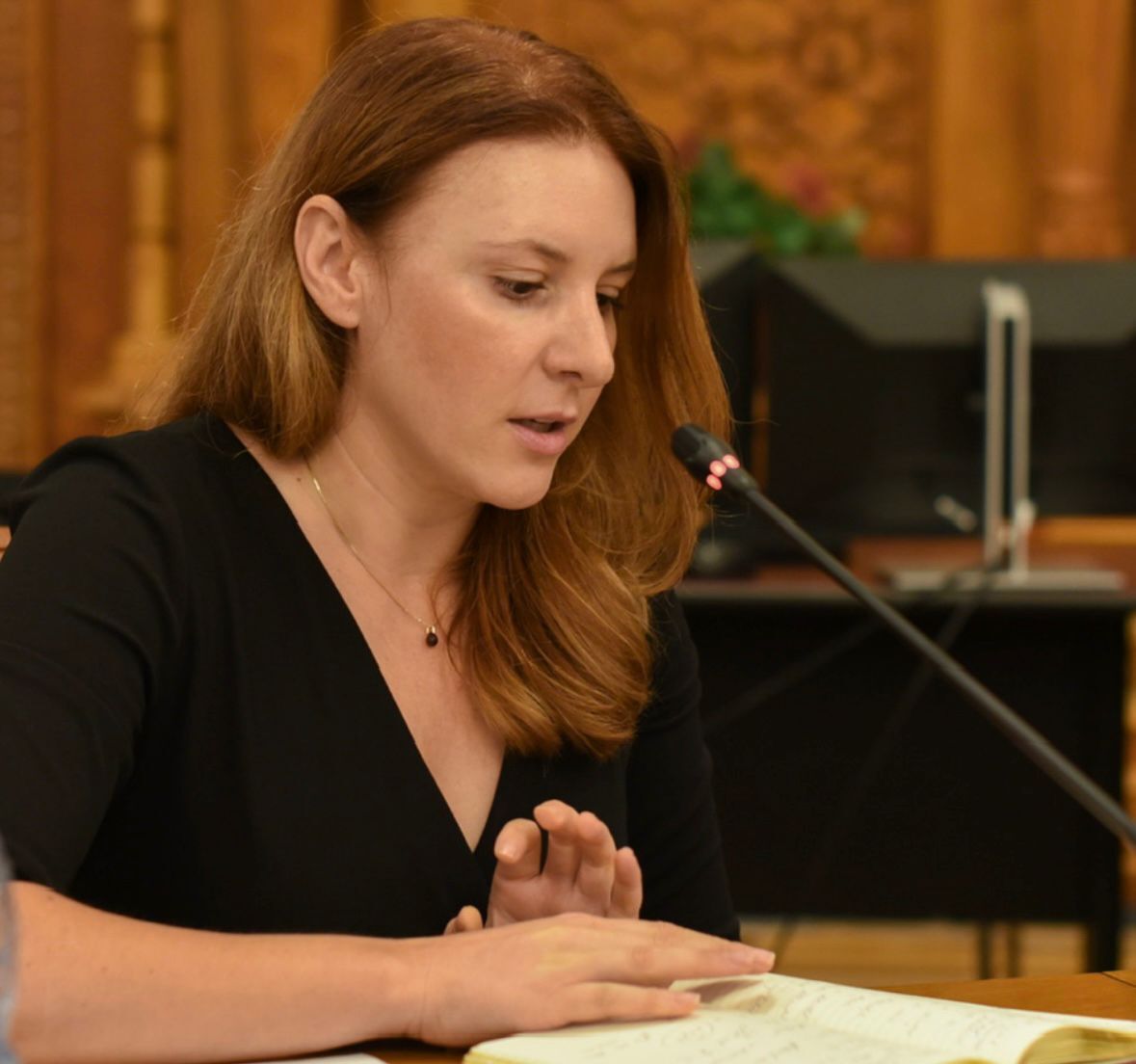Interview with Susana Dragomir, political scientist, expert in strategic communications.
In November and December, Romania held parliamentary elections and the first round of presidential elections, which were later annulled. The campaign of the winning candidate, far-right politician Călin Georgescu, was exposed as a product of coordinated foreign manipulation. Dubbed the “Romanian Orban,” Georgescu propagated Eurosceptic, anti-NATO, pro-Russian, and anti-Ukrainian narratives, which we examine in detail in this material. His meteoric rise in popularity was fueled by 25,000 TikTok accounts that artificially boosted his ratings ahead of election day.
The electoral process was subsequently restarted, beginning with the re-registration and verification of candidates, while the EU launched an investigation into TikTok for suspected interference in Romania’s elections. These events underscore vulnerabilities in countries whose support is critical for Ukraine. The potential ascent of far-right and pro-Russian forces poses significant challenges not only for Kyiv but also for the broader European community.
Interestingly, an INSCOP survey commissioned by the media revealed that Russia ranked last in terms of positive perception among Romanians. How, then, did the rhetoric of a pro-Putin candidate resonate with Romanian society? How does propaganda infiltrate the information space of our southern neighbor? And most importantly, how can these challenges be addressed?
To explore these questions, we spoke with Susana Dragomir, a political scientist, expert in strategic communications, and knowledgeable in the Romanian context.
Could you tell us about your background and current work?
I’m currently pursuing a PhD on anti-EU and anti-Western disinformation in the cyber age, a subject I’ve been studying for over six years. My research began in 2018 with a focus on Russian propaganda in Romania. Before this, I worked as a strategic and political communication advisor in the European Parliament for over 11 years. Now, I consult on strategic communication while continuing my research.

Susana Dragomir
How does Russian propaganda infiltrate Romania, compared to other countries like Ukraine or Moldova?
Romania’s case is unique. Historical tensions make it difficult to foster pro-Russian sentiment here. Instead, Russian narratives aim to sow anti-EU and anti-NATO sentiments, weakening trust in Western alliances.
The strategy is subtle. Russia positions itself as a defender of Christian values, contrasting its image with that of the EU, which is often depicted as a promoter of liberal and LGBTQ+ agendas.
Proxies are key. Russia leverages alternative media platforms and far-right social media bubbles to spread its narratives. While official Russian channels have been shut down, alternative sources have mushroomed. In my research, I identified roughly 300 websites spreading pro-Russian propaganda in Romania, often overlapping with anti-EU, anti-Ukraine, and even anti-vaccine content. These bubbles became more active during the pandemic and have since shifted to focus on anti-Western narratives.
You mentioned Christian-based disinformation as a significant factor. Can you elaborate?
Christian narratives are often exploited to push propaganda. These narratives draw heavily on Alexander Dugin’s pan-Slavic concept of the “Third Rome,” which frames Moscow as the rightful successor to ancient Rome and the EU as a “gay dictatorship” threatening traditional values.
This propaganda is amplified by radical Orthodox groups, far-right influencers, and even some high-ranking Church officials. For example, Archbishop Theodosius of Tomis has openly praised figures like Dugin and Putin. Meanwhile, networks of religious influencers spread pro-Russian messages online, often under the guise of defending traditional Christian values.
One example is Kallistrat, a monk with a vast online presence across Facebook, YouTube, and TikTok. His content mixes Christian imagery with anti-EU, anti-NATO, and anti-Ukraine propaganda. His messaging is deeply misogynistic and has even led to headlines for violent behavior.
Who else is driving these narratives?
Beyond religious figures, we’ve seen involvement from far-right political actors, like Mr. Georgescu, a recent presidential candidate. He’s known for making inflammatory claims, such as alleging that Ukrainian children in Romania receive 3700 ron per month compared to just 249 lei for Romanian children.
Georgescu’s campaign mixed religious rhetoric with neo-fascist and nationalist themes. It also relied heavily on AI-generated content, bots, and micro-targeted social media messaging, setting a new precedent for disinformation-driven elections in Romania.
Does this mean social media is the main channel for disinformation?
Not entirely. Russian propaganda infiltrates both social media and traditional outlets. Some journalists and media platforms serve as proxies for these narratives.
The bigger issue is oversight. Romanian authorities have failed to regulate the informational space effectively. Russian operatives have conducted “social mapping,” identifying vulnerabilities in Romanian society, such as economic inequality, mistrust in institutions, and weak education systems. These gaps are then exploited to spread divisive narratives.
Moreover, Romania’s electoral system faced 85,000 cyberattacks during the elections. That’s not a trivial issue. It’s an attack. It becomes stronger and stronger, and our response must be equally strong. This requires a NATO-level approach. The recent push in Brussels for NATO countries to contribute 3% of their GDP to defense is a positive development. So let us be more optimistic and hope that we can still stand.
The far-right candidate’s success in Romania’s elections shocked many. What’s your take?
Like many, I didn’t expect Mr. Georgescu to dominate the first round. I thought Simeon, another far-right candidate, would win. But Georgescu’s campaign revealed the extent of polarization in Romania.
His success was fueled by a masterful use of micro-targeting on social media. Each demographic was fed tailored messages: religious groups were promised a return to traditional values, women were told what they wanted to hear, and young people were offered narratives of hope and change. This level of social engineering is unprecedented in Romania.
How can Romania and the EU combat this hybrid warfare?
We need to move from a reactive to a proactive approach. First, education is crucial. Media literacy and critical thinking must be taught in schools, but these efforts take time.
Second, enforcement is key. Those who intentionally spread disinformation and serve hostile foreign interests must face legal consequences. This is no longer just about pre-bunking or debunking—it’s about accountability.
Third, the EU must rethink its communication strategy. Its current messaging is too technical, elitist, and unappealing to the general public. The EU needs to speak directly to citizens, highlighting the tangible benefits of membership in ways people can relate to.
Finally, we must accept that we are at war—a hybrid war. The reactive approach isn’t working. Social media evolves faster than we can regulate it, and platforms like TikTok and Telegram have become breeding grounds for disinformation.
What about the broader geopolitical implications?
Romania’s situation isn’t isolated. It’s part of a broader strategy by Moscow to create a pro-Russian belt around Ukraine. Disinformation campaigns in Moldova, Georgia, and other neighboring countries follow similar patterns, aiming to isolate Ukraine and destabilize Western allies.
Romania is a key player in supporting Ukraine, providing trade corridors and strategic cooperation. For Russia, disrupting Romania weakens this support and gives them greater access to strategic areas like the Danube corridor.
What’s the path forward?
This is a new Cold War, and we need to wake up to the realities of hybrid warfare. Europe must address internal vulnerabilities, including social inequality, corruption, and lack of education, while simultaneously strengthening its defense capabilities.
The EU also needs to act swiftly against Russian influence within its borders. This includes monitoring financial flows, exposing proxies, and holding platforms accountable for spreading harmful narratives.
At the end of the day, this isn’t just about Romania or Ukraine. It’s about the survival of democratic values in the face of a sophisticated and relentless adversary.



